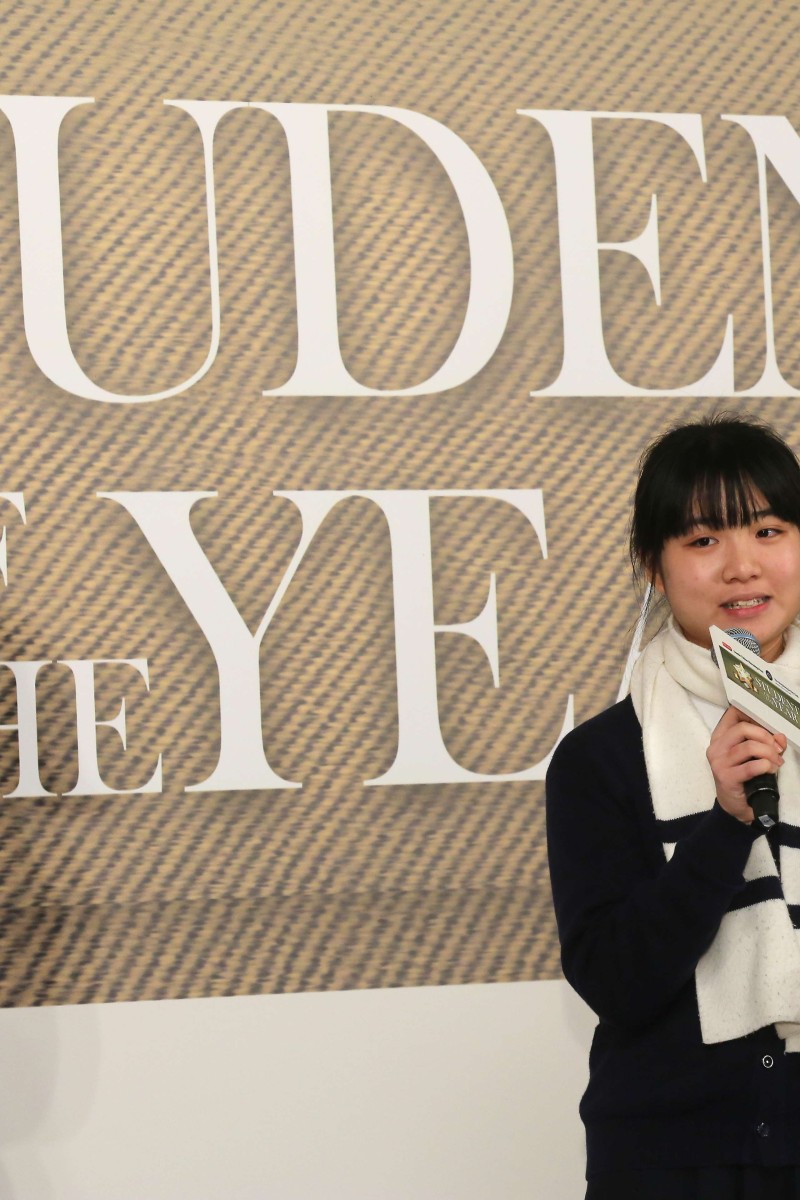
SOTY 2015: What does it take to win the scientist and mathematician category?
Last year’s winner of the scientist and mathematician category of the Student of the Year competition tells Young Post about where it all went right for her
 Scientist & Mathematican winner Jaime Tsang of St Paul's Convent School (Secondary Section) shares her tips of winning SOTY.
Scientist & Mathematican winner Jaime Tsang of St Paul's Convent School (Secondary Section) shares her tips of winning SOTY. This time last year, Jaime Tsang Tsze-wing was busy preparing for the scientist and mathematician category of the SCMP Student of the Year (SOTY) competition – which she then went on to win.
This year, she is a medicine student at Hong Kong University, but even though she is hard at work, Jaime says that the memories of the SOTY competition are ones that she’ll always treasure. Jaime’s winning project from last year was an attempt to make pastel crayons from food waste using no additives, so that they would be safe for children to use.
The Student of the Year Awards are organised by Young Post in conjunction with the South China Morning Post and sponsored by the Hong Kong Jockey Club with support from the Education Bureau..
Jaime says that she appreciates having met so many young people with similar interests and who all possess such great determination. In particular, she remembers a young girl who wanted to study physics at university and was committed to the path that she would need to take in order to achieve that.
“I really admired her determination,” she says, and added that she wished she had the same sort of motivation, as it is hard to keep herself motivated when studying medicine. “I took away a few life lessons [from the SOTY competition], like not allowing myself to give up easily.” She credits her school, St Paul’s Convent School, for giving her plenty of opportunities in which to explore the boundaries of her interests. Incidentally, Hong Kong’s very first home-made aircraft, the Inspiration, was built with student participation at her school.
Jaime had to do plenty of preparation before going into the competition, she says, adding that she spent a lot of time going through the little details of her project in case she was quizzed on any of it. She also tried to put together a list of questions – ones that she felt she might be asked by the judges, such as what her opinion was on recent technological developments. Once she had figured out the sort of questions that could be asked, she then worked on having a clear structure to follow for all her answers. This really helped her, she says, as it was a way of forcing her mind to focus on anything other than her nerves.
“You get really nervous,” she says on being at the interview venue and having to wait. “Having a clear structure [in your mind] for answering questions helps.” The judges asked her about a variety of things, but especially focused on what she had done at school.
“I was lucky as I had done a lot of science-related projects,” Jaime says, adding that this may have been what saw her edge out the competition and helped her net the first prize in her category. Albert Wong, the chief executive of the Hong Kong Science and Technology Park, is one of the judges in the upcoming 2016 SOTY competition. Wong agrees with Jaime that perseverance and determination are two very important characteristics to have when you want to flourish in science and mathematics – which are environments where people might fail many times before succeeding once.
The contestants should, he says, possess strong communication skills and a determined and persuasive manner. They will need this as they must be able to explain technical terms and details to the judges in simpler language, while being able to convince them of the viability of their plans.
It’s not just about having good communication skills either, he says, as Wong also expects contestants to be able to present practical ideas and provide a blueprint that details the negatives and the positives.
For young students who choose to or who want to study science, he says, there’s good news – there are many excellent job opportunities for them in Hong Kong’s innovation and technology industry.
“Biomedical technology and life sciences are emerging fields in Hong Kong and worldwide,” he says. “The health care and medical industry will create many quality jobs, all of which will require people to have knowledge of science, research and engineering skills, and to have empathy for the underserved.”
Jaime, meanwhile, is that much closer to fulfilling her dreams. She wants to take a gap year so that she can spend time on research and eventually work her way towards becoming a doctor.
Edited by Ginny Wong